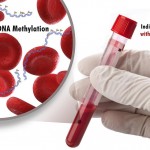Scientists are a step closer to finding a way of preventing Alzheimer’s disease – and even REVERSING it, it has been revealed.
Researchers have discovered that changes in the brain linked to the degenerative illness could be caused by the turning on and off of genes.
These ‘switches’ – known as epigenetic changes – can be affected by outside factors like diet and exercise, making them potentially reversible.
Researchers hope this staggering breakthrough could pave the way for treatments which cure or reverse the devastating impacts of Alzheimer’s disease.
Dr Clare Walton, research communications manager at Alzheimer’s Society, said it was only through “vital” research like this that progress could be made towards a cure.
She said: “Epigenetics is an exciting field of research that can help us to understand how the environment and our genes interact in the development of dementia.
“This study provides strong evidence that epigenetic factors are involved in Alzheimer’s disease, opening up new avenues to explore in the search for new treatments.”
Scientists already knew that Alzheimer’s disease is likely to develop thanks to changes in the DNA code of genes.
It was feared that these changes were permanent, but this new research has revealed that the cell change could be down to a switching on and off of the genes.
This switching happens in other parts of the body and can be influenced by outside factors like diet, exercise, smoking and alcohol.
If further studies can prove that the epigenetic modifications are caused by the onset of Alzheimer’s it is hoped new therapies can be developed to reduce the affects.
Professor Jonathan Mill, who headed the study, said: “This is the strongest evidence yet to suggest that epigenetic changes in the brain occur in Alzheimer’s disease.
“It offers potential hope for understanding the mechanisms involved in the onset of dementia.
“We don’t yet know why these changes occur – it’s possible that they are involved in disease onset, but they may also reflect changes induced by the disease itself.”
Dr Simon Ridley, Head of Research at Alzheimer’s Research UK, the UK’s leading dementia research charity, said the latest research was promising.
He said: “We know that changes to the DNA code of certain genes are associated with an increased risk of developing Alzheimer’s disease.
“Investigating how epigenetic changes influence genes in Alzheimer’s is still a relatively new area of study.
“The importance of understanding this area of research is highlighted by the fact that epigenetic changes have been associated with development of other diseases, including cancer.
“Alzheimer’s affects millions of people worldwide and we need pioneering research to understand exactly why the disease occurs.”
The study was carried out by researchers at the Exeter Medical School and King’s College London.
In the first research of its kind, the medics did post-mortem analysis of DNA extracted from the brain tissue of Alzheimer’s patients.
They looked at several regions of the brain and also examined blood samples taken from several hundred sufferers of the currently incurable disease.
Their findings, published in the journal Nature Neuroscience, revealed a correspondence between areas of the brain affected by the disease and epigenetic changes.
Dr Katie Lunnon, first author on the study, said: “Every organ in your body has the same genetic code, but each does a very different, specialised job. This is a result of epigenetic changes causing certain genes to be switched on and off in those tissues.
It is these changes that result in your heart cells being very different from your skin cells, for example. It’s intriguing that we find changes specifically in the regions of the brain involved in Alzheimer’s disease.
Future studies will focus on isolating different cell-types from the brain to see whether these changes are neuron-specific.”
By Izzy Ferris and Laura Elvin





